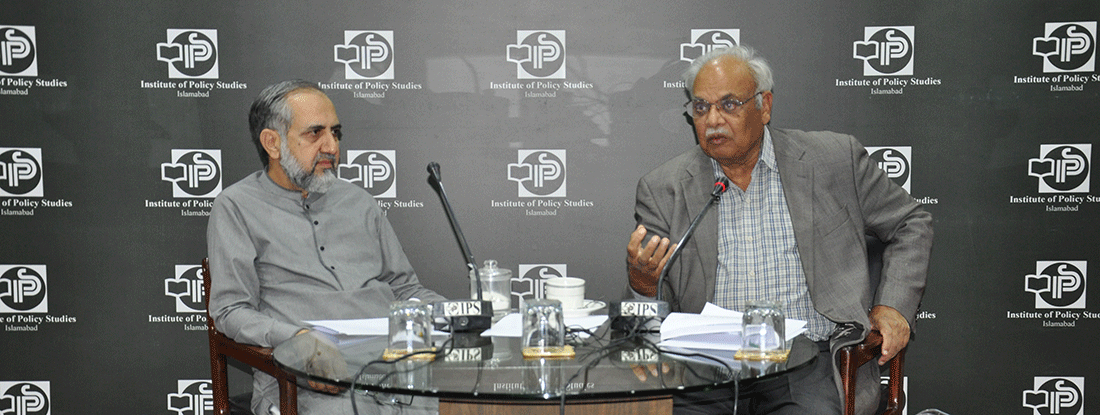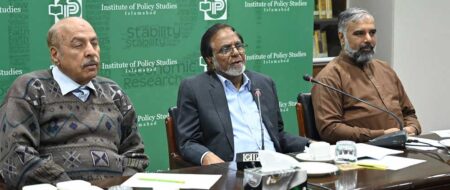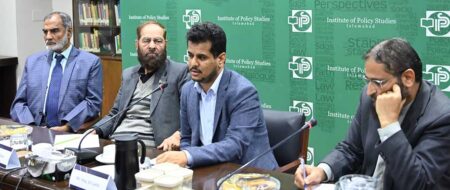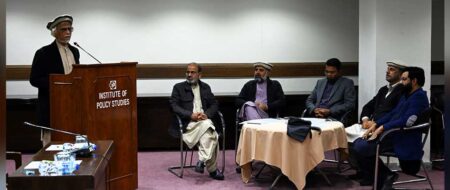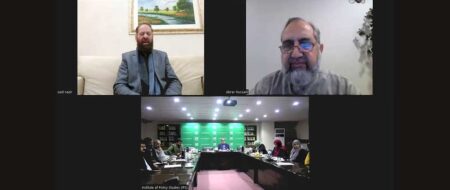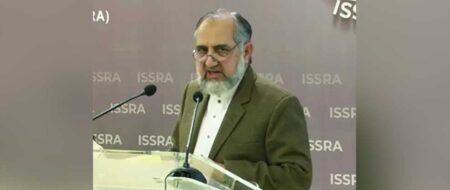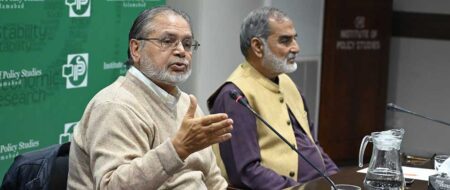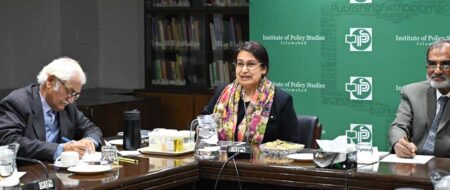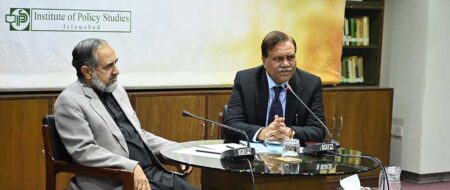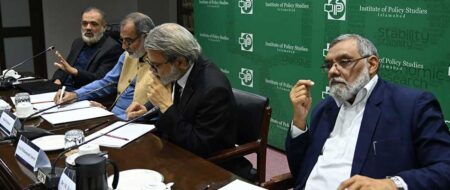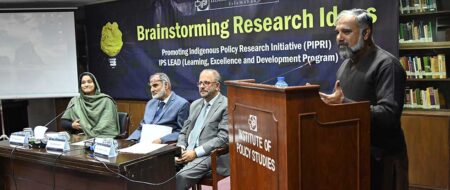The Living Scripts | Riaz Mohammad Khan (Former Foreign Secretary of Pakistan)
Divided into four separate sittings, the 22nd session of IPS series of program ‘The Living Scripts’ was held with Riaz Mohammad Khan, former Foreign Secretary of Pakistan, on Feb 26, March 16 and 2, and April 4, 2021.
Starting the life’s story from his childhood, Khan apprised that he started his early education from home as his family had very limited resources. He however credited his parents for all of his future success sharing that they were avid book readers and hence compelled him to read a lot of books as well, which turned out to be very helpful later in his career.
Speaking of higher education, Khan informed that he did his Masters in Mathematics from the University of Punjab, Lahore, and then started his professional career from the same institution as a teacher in 1965.
Throwing a light on his time at the Foreign Office, he apprised that he joined the Foreign Services after qualifying in the competitive exams of 1969. His diplomatic career then started with a posting in Beijing in 1970. He then served seven years at Pakistan’s Mission to the United Nations in New York City from 1979 to 1986. Later Khan also remained the director-general of Afghanistan and Soviet affairs at the Foreign Office. He shared some accounts of important historical events and meetings which he witnessed firsthand during this tenure, from the invasion of Afghanistan by the Soviets to the withdrawal of the Red Army.
He shared that his last field assignment was as the Ambassador of Pakistan to China (2002-2005). He then returned to Islamabad in early 2005 to serve as Pakistan’s Foreign Secretary, a post he held till 2008.
Apart from sharing many interesting stories from his personal and professional life, the speaker also shared some insights from his books ‘Untying the Afghan Knot: Negotiating Soviet Withdrawal’ and ‘Afghanistan and Pakistan: Conflict, Extremism and Resistance to Modernity’.


